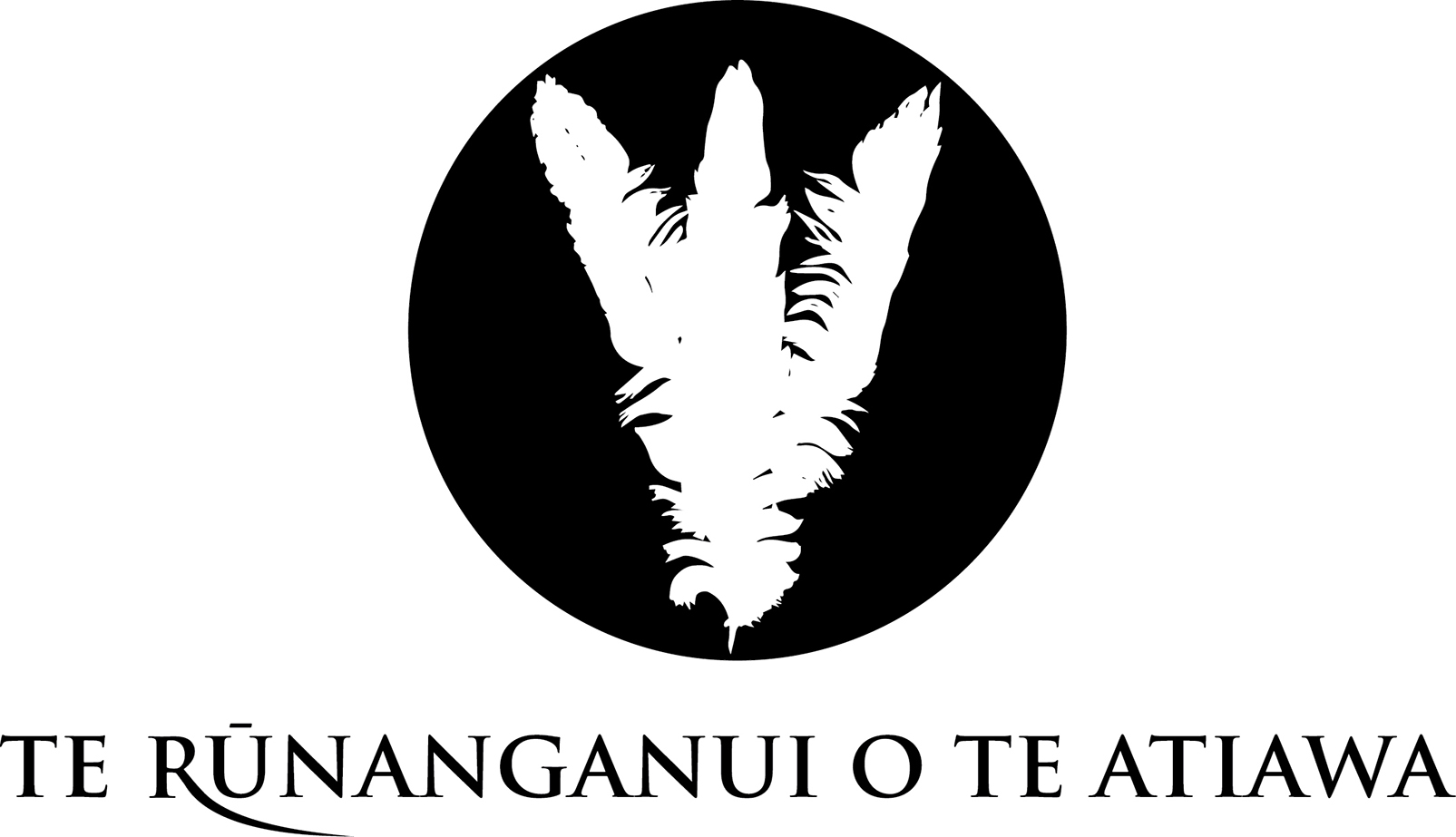Te Rūnanganui o Te Āti Awa
About us
Te Rūnanganui o Te Āti Awa ki te Upoko o Te Ika a Māui
Te Āti Awa tupua rau, he auripo i te manga nui, he kaitiaki ki te whenua
(Te Āti Awa of many phenomenon, a swirl in the water, a guardian to the land)
Te Rūnanganui o Te Āti Awa ki te Upoko o Te Ika a Māui (Te Rūnanga) is based in Waiwhetu, Lower Hutt. We are a member of Āti Awa nui tonu Mana whenua rōpū. As an iwi-based organisation, our way of being and practicing is embedded in Te Ao Māori. This is to ensure tikanga, particularly Te Āti Awatanga, kaupapa Māori and mātauranga Māori underpins all our services.
Our Vision – reaching for the stars: aspiring for the greatness in all people
Our Purpose – to strengthen the health, social, economic and cultural wellbeing and aspirations of our people
Mission – Reduce inequity; Support marae in their aspirations with their respective communities to enhance wellbeing; and Be the first point of contact for people looking for help
Values
Manaakitanga – respecting all people, listening and supporting without judgement, and encouraging the practice of reciprocity through sharing of ourselves and our resources. Nurturing and respecting all people, and accepting our differences.
Whanaungatanga – belonging and strengthening our identity and collective strength, through kinship and through building and expanding constructive relationships with all within the community.
Hauora – supporting and fostering the physical, mental, emotional and spiritual wellbeing of people.
Tū Tangata – being accountable for our actions, supporting the sustainable development of people, communities, cultures and the environment.
Rangatiratanga – determining our own path and navigating a partnership approach to working under the principles of Te Tiriti o Waitangi.
We believe in the potential of people – He Tangata, He Tanagata, He Tangata. We are committed to delivering social and community services to all people within the rohe, with a strong focus on accessing, supporting and meeting their needs.
We have demonstrated capability to engage with our communities to identify and meet these needs. We have a huge presence in the local community which has helped us build and maintain strong relationships with Government Agencies, surrounding entities and communities and organisations both across Aotearoa and Internationally.
Te Rūnanganui whakapapa to Taranaki Whānui whose rohe is the Wellington region shown below.

As a signatory to te Tiriti o Waitangi we partner with the Government of Aotearoa, New Zealand in assuring the social, cultural, economic and environmental wellbeing for tāngata Te Āti Awa and the local community of Lower Hutt.
- We offer a range of services that enable us to engage with a wide range of clients, we are committed to continuous improvement to deliver services to build whānau and community wellbeing.
- We use a collaborative approach to build a network of provision through engagement with iwi, marae, local and central government agencies, education providers and NGOs.
What We do and Why
Whaikorō0ia ki te Atua i runga rawa
Maungārongo ki runga i te whenua
Whakaaro pai ki ngā tāngata katoa
Te Rūnanga aspires to be a leader supporting the wellbeing of all people within the Hutt Valley. As Mana whenua we believe we are responsible for assisting Māori to achieve equity with non- Māori, building on our unique strengths, cultural knowledge, language and values.
We aim to:
- Reduce inequity
- Support marae in their aspirations to enhance wellbeing for their respective communities
- Be the first point of contact for people looking for help
Our Strategic Intent guides us in achieving our vision and mission we will give effect to the following strategic pillars:
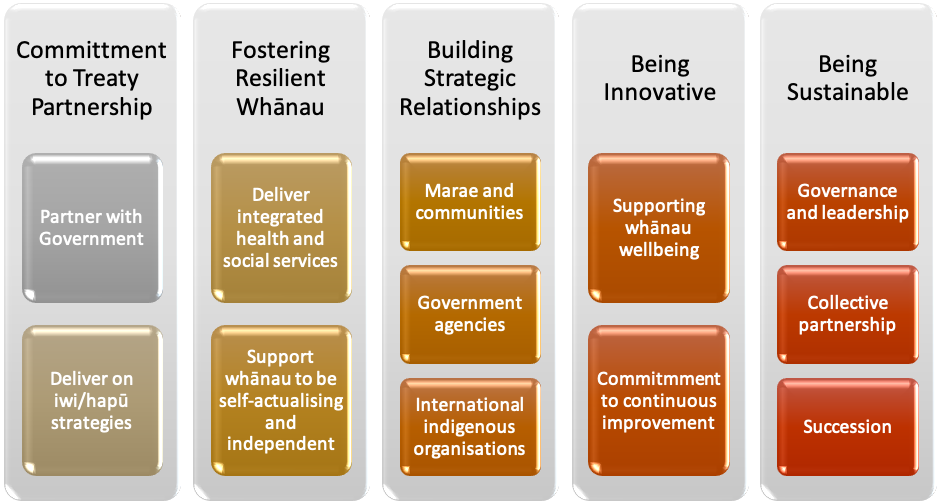
Commitment to Treaty Partnership – We assert our status as mana whenua for the region and the associated responsibility for caring for Māori who reside here. Our leadership and management practices are tikanga-guided and we use a strategic, collaborative and outcomes-focused approach to partner with Government and its agencies, and to deliver on iwi/hapū, regional and national strategies.
Fostering Resilient Whānau – We deliver tikanga-based and integrated health, social care, education and advocacy services alongside cultural programmes to support whānau in developing their capability to fulfil their potential and meet their aspirations.
Building Strategic Relationships – Our practice recognises the central premise that strong and sustained relationships are required to deliver our whānau-centric services. We work closely with and accommodate our associated Taranaki and Te Āti Awa organisations to maximise the potential impact a unified Te Āti Awa organisation can collectively deliver. We work with five Marae within the Hutt Valley to build sustained relationships with our communities.
Being Innovative – We look for new ways of doing things: to support whānau wellbeing; to critically reflect on our performance; and to seek continuous improvement in what we do. We seek to use technology as driver and supporter of change within our communities.
Being Sustainable – We work to ensure robust governance and sustainability of Te Rūnanga through development and succession planning. We are committed to bringing iwi entities together, demonstrating collective partnership in governance to ensure the “voice” of Māori is heard by Government.
Our people
Kāwanatanga Rūnanga
Te Rūnanga is governed by a Board who whakapapa to Te Āti Awa and who have the mana and skills to provide the necessary leadership and governance oversight. Each member also has a role in representing Te Āti Awa on other governing Boards relevant to The Rūnanga and its work. The Board is:
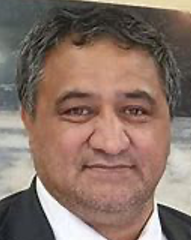
Kura Moeahu (Chairman)
Kura has strong ties to the eight iwi of Taranaki and Ngāti Toa. He is Tumu Whakarae (Principal Adviser, Māori) for Parliamentary Services. Highly sought after for his in-depth knowledge of tikanga and mātauranga Māori, facilitation, negotiation skills and strategic thinking. Committed to “the advancement of whānau wellbeing through a Te Ao Māori perspective”, he strives to uphold the mana and tikanga of Te Āti Awa within our tribal takiwā. Kura is also the Chair of Te Rūnanganui o Te Āti Awa, Waiwhetu Marae, Āti Awa Toa FM Ltd and sits on the Board of Creative NZ, WelTec and Whitireia.

John Warren
John has whakapapa to Te Āti Awa, Ngāti Toa and Ngāti Mutunga. He trained as an electrical engineer and is now retired from his role as a ships Chips Electrical Officer. John has served on a number of board for samall business and sports clubs, and is a past Chairman of Te Ātiawa ki the Upoko o the Ika a Māui Pōtiki Trust. He is Chairman for the Trust Board of Tatau o te Pō Marae and Chairman of Te Puni Urupā.
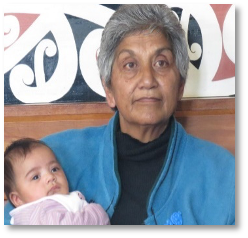
Peggy Luke-Ngaheke
Peggy is of Te Āti Awa descent and is Manager of the Waiwhetu Marae. She has a long background in education and counselling and is a qualified Alcohol and Drug Counsellor. She served 16 years working for Te Kōhanga Reo Trust Board Head office as Manager of Ikaroa and Manager of Operations. She provides advisory/cultural services to a number of organisations including DAPPANZ,NZQA, Oranga Tamariki and other government departments. Peggy represents Te Rūnanga on the Board of Te Awa Kairangi Primary Health Organisation and Kahungunu Whānau Services.
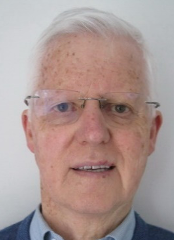
Grant Donnelly
Grant is a qualified pharmacist, now retired, with over 35 years’ experience working in the community. He owned a pharmacy in Waiwhetu for 34 years, selling this when he retired in 2018. He was the Chairman of the Waiwhetu Primary Health Organisation until this was disestablished. Grant brings a strong background in health service delivery and sits on the Audit and Risk Committee.
Matiu Jennings
Okawa Priest
Wiremu Moeahu
Karepa Wall
Audit and Risk Committee
The Audit and Risk Committee is a sub-committee of the Board with oversight of the financial performance and risk management capability of Te Rūnanga. Current membership is:
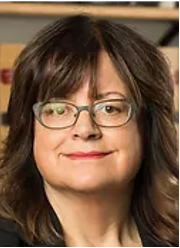
Melanie Baker (Chair)
Melanie is a Lower Hutt Lawyer who owns her own law firm and practices in the areas of Family, Criminal and Property Law for over 30 years. She affiliates to Ngāti Tama, Ngāti Mutanga and Te Āti Awa and has had wide ranging involvement in the local community including being a Director of Āti Awa Toa FM and being on the Board of Trustees as member and Chairperson of Petone central School. She brings expertise in governance and law and is supported on this Committee by Board members Lee Hunter and Grant Donnelly.
Leadership Team
Te Rūnanga leadership team in 2020 is:
Wirangi Luke – Te Tumu Whakarae
Wirangi is of Te Āti Awa descent having been and was born and raised in the Waiwhetu Whānui. He comes from a corporate background and has oversight of all the operations of Te Rūnanga. He is passionate about making a difference in the lives of people and in building effective teams. Wirangi leads a team of 6 managers and an Executive Officer, Nikita Temple, who collectively ensure the organisation is successful.
Hata Wilson – Kaihautū Matua | Iwi Relations
Hata is of Ngāti Kahungunu ki Wairoa descent and has oversight of Whānau Ora, Tamaiti Whāngai and Iwi Panel services. He comes from a background of public service and has an in-depth understanding of and appreciation for the Whānau Ora model of integrated service delivery with a focus on achieving positive outcomes for whānau. He has been an architect of the Tamaiti Whāngai Iwi Panel process and is committed to the partnership approach to achieving positive outcomes.
Dr Amanda Torr – Kaihautū Matua | Strategic and Innovation Developments
Amanda is Ngāti Pākehā and comes from a health and education background and has oversight of Strategy and Innovation for The Rūnanga as well as for Tamariki Ora, Hauora, and health promotion services delivered under contract to the HVDHB and MoH. Amada has led much of the development of strategic and Results Based Accountability (RBA) frameworks the Rūnanga uses.
Dinah Luke – Kaihautū Matua
Dinah has whakapapa links to Te Āti Awa, Ngāti Maniapoto and Kūki Airani. She holds a Bachelor of Applied Management and leads the education programmes of Te Rūnanga including the Tamaiti Whāngai Rapu Mahi programme and Te Toi Ararau programme. Dinah brings her experience of event management and business to her role.
Our Partners
To help us achieve our vision we work with the following partners and organisations:
| · Ōrongomai Marae | · Koraunui Marae |
| · Waiwhetu Marae | · Wainuiomata Marae |
| · Kōkiri Pukeatua Marae | · Waiwhetu Medical Centre |
| · Hutt Valley District Health Board | · Hutt City Council |
| · Te Awa Kairangi PHO | · New Zealand Police |
| · Ministry of Health | · Kahungunu Whānau Services |
| · Wellington Institution of Technology | · Ministry of Social Development |
| · Whitireia New Zealand | · Work and Income New Zealand |
| · Te Puni Kōkiri | · Ministry of Education |
| · Oranga Tamariki | · E Tū Whānau |
| · Whānau Ora Collective | · Te Māngai Pāho |
| · Te Rūnanga o Toa Rangatira | · Kōkiri Seaview |
| · Ara Poutama Aotearoa Department of Corrections | · Teaching Counsil of Aotearoa New Zealand |
Our Mahi
Tamaiti Whāngai
From the founding work of Dr Ihakara Puketapu (ex Chair) Te Rūnanga has developed the Tamaiti Whāngai philosophy and a Wellbeing Framework that underpin our mahi.
Tamaiti Whāngai is an iwi-based philosophy that focusses on fostering strong whānau using a whole of community approach. This philosophy gives effect to “the practice of supporting and nurturing children – remembering we are all children – responsible to, and for, each other”[1]. It has four main focus areas based on the age of tamariki/rangatahi.
For tamariki aged 0 to 5 years, the practices used focus on building strong and healthy whānau through supportive parenting, holistic Tamariki Ora and breastfeeding support and the provision of health services.
For tamariki/rangatahi aged 5 to 25+ the practices and services provided support whānau wellbeing, education achievement and employment pathway support through a range of health, whānau ora and education services and programmes.
Tamaiti Whāngai has led to the development of a Wellbeing Framework that Te Rūnanga uses to map our service delivery and outcomes. This multidimensional framework that underpins of kaupapa is shown below.
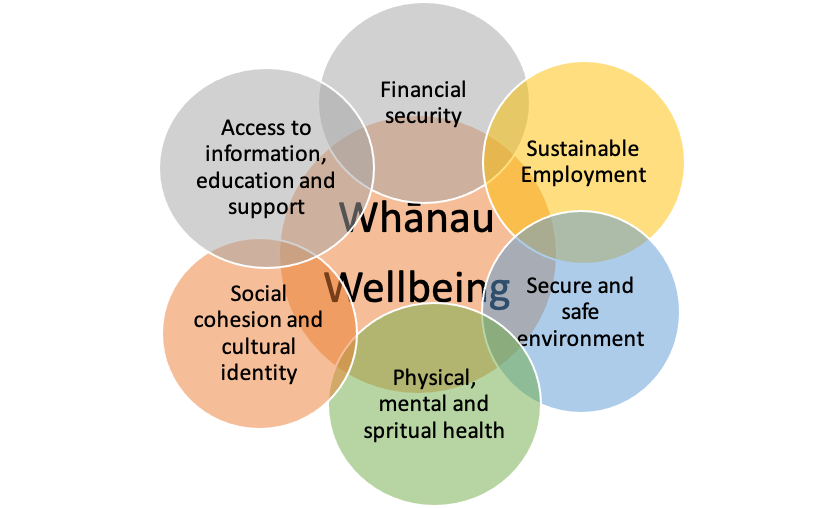
The principles underpinning this framework and the kaupapa drawn from it are:
- Whānau First – the whānau is at the centre of the service that is provided and regardless of the first contact point a client may have with the service, the case manager (Kaiāwhina/ Kaiārahi/Kaiarataki) will seek to identify all wellbeing issues impacting the whānau and address these.
- Holistic Response – assessments and development/treatment plans aim to improve health and social outcomes for whānau and may involve other agencies in delivering an integrated response to identified needs.
- Working together to address Complex Issues – complex issues often cannot be resolved with simple solutions. They require a team approach, utilising expertise from a range of sources. Building a multidisciplinary team approach is at the core of the case management approach.
- Agility and Flexibility – as the service aims to support and assist whānau wherever they may be on their journey, the services provided must be agile, flexible and responsive to need. Every response and intervention will be unique and tailored to the needs of the whānau
- Manaakitanga – all services provided aim to build the mana of the people who are part of the process. Mutually respectful and trusting relationships are at the core of service provision, along with practices that develop resilience, cultural identity and confident social citizens
- Moving from Dependence to Independence – the goal of the services provided is to build resilience and the skills that enable individuals and their whānau to be self-actualising, able to sustain their own wellbeing and to contribute to the social and cultural wellbeing of the community in which they reside
[1] Translation of the Tamaiti Whāngai principles Kara Puketapu
